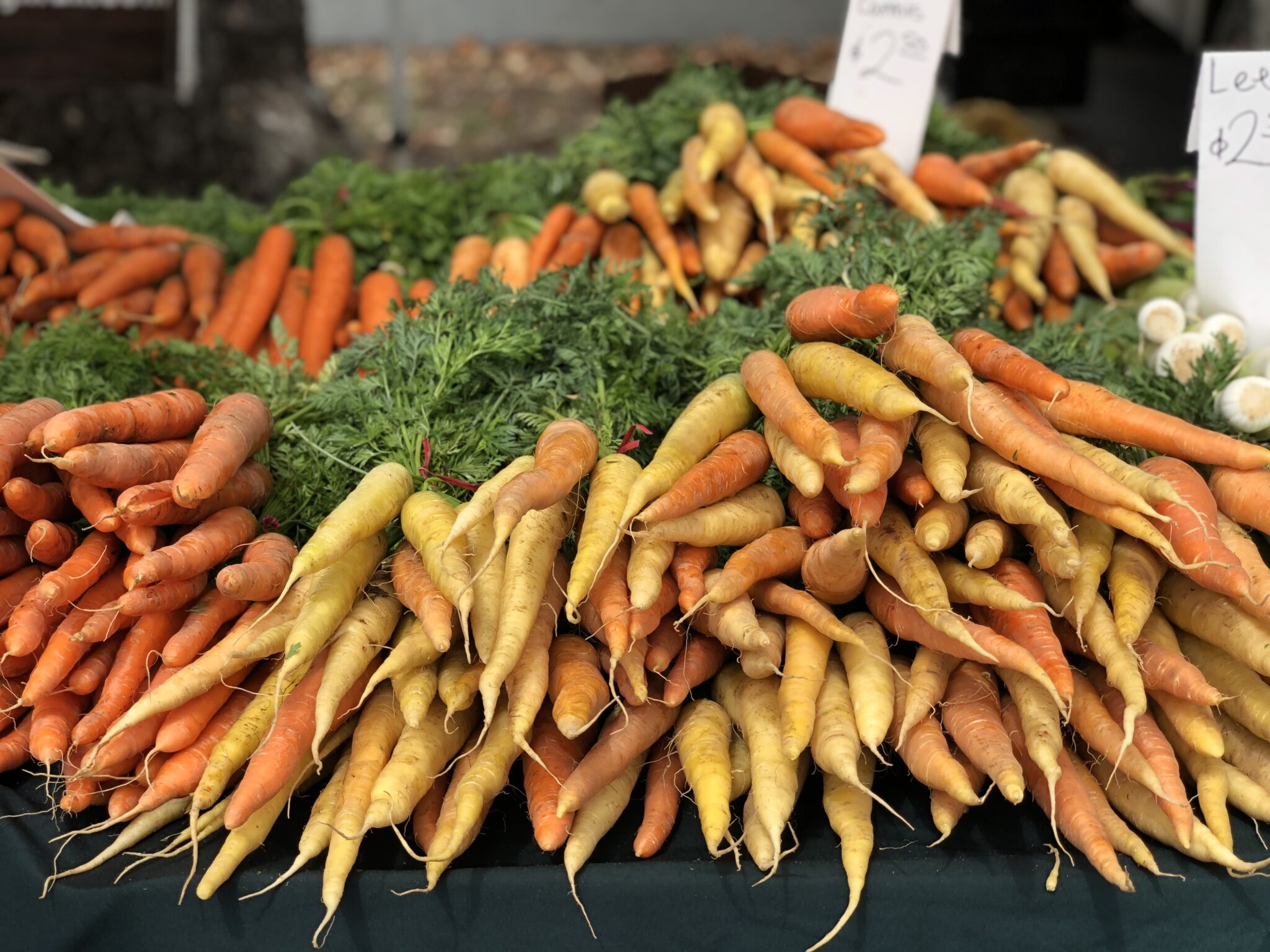
Is it possible to have a vitamin A deficiency? Which plant-based foods should you be eating to get enough vitamin A? I’m answering your top questions on how to get vitamin A sources on a plant-based diet on my Ask Sharon feature. Plus, grab my 10 Vitamin A Recipes—each delicious, plant-based, and packed with vitamin A.
How can I make sure I’m meeting my nutrient needs if I eat a plant-based diet? I get so many questions on this topic. Whether you’re eating a vegan, vegetarian, semi-vegetarian, or plant-leaning diet, it’s important to eat a balanced diet that includes all of the micronutrients you need, from vitamin A to zinc. It’s completely possible to do just that, but it does take some smart planning. In fact, the Academy of Nutrition and Dietetics states that a plant-based diet, including vegetarian and vegan diets, can be healthy and nutritionally adequate, as long as it’s planned wisely. And that also includes the important micronutrient, vitamin A. So, listen in as I answer your top questions on getting vegan vitamin A sources in your eating plan.
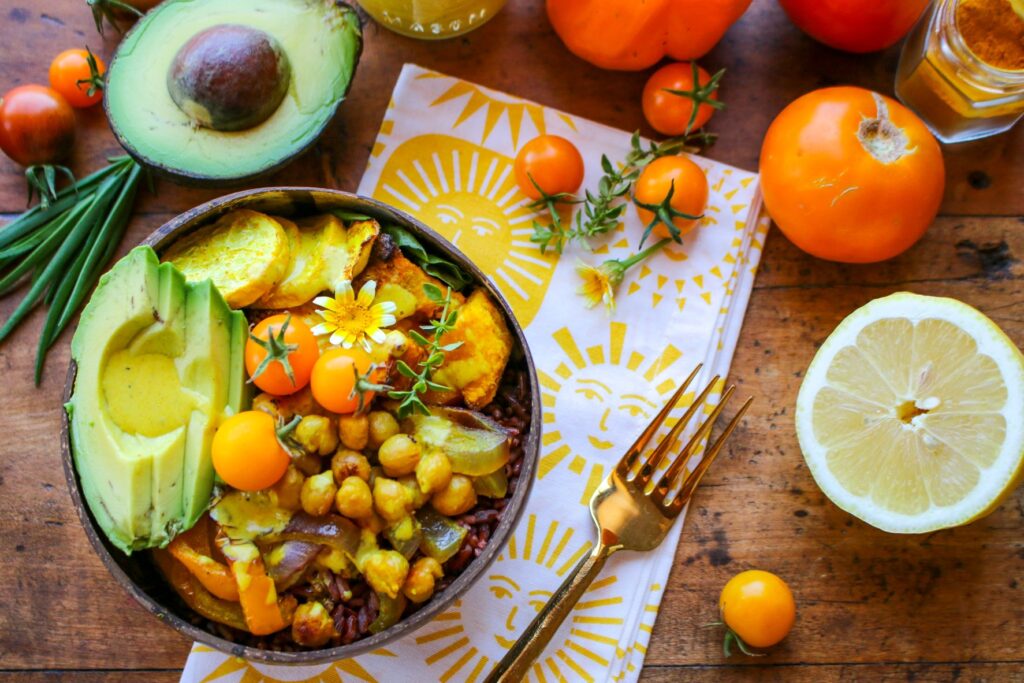
Question: Is it possible to have a vitamin A deficiency on a vegan or vegetarian diet?
Sharon’s Answer:
Unless one eats a very poor diet, it’s unusual for someone eating a plant-based diet to be deficient in vitamin A, as there are many plant-based foods rich in vitamin A. Data from studies shows that less than 1% of the U.S. population has a serum retinol level of less than 20 mcg/dL, indicating vitamin A deficiency. Thus, it’s very uncommon in the US; however, it is more prevalent in developing nations where access to a variety of foods is less common. Studies have shown that vegetarians tend to get more vitamin A than meat eaters. One study in the UK did show that vegans in the study had lower intakes of vitamin A, so it is a good reminder that ensuring you get adequate vitamin A intake is important. Vitamin A deficiency also may occur with conditions, such as cystic fibrosis or gastrointestinal disorders, when absorption may interfere with good vitamin A status.
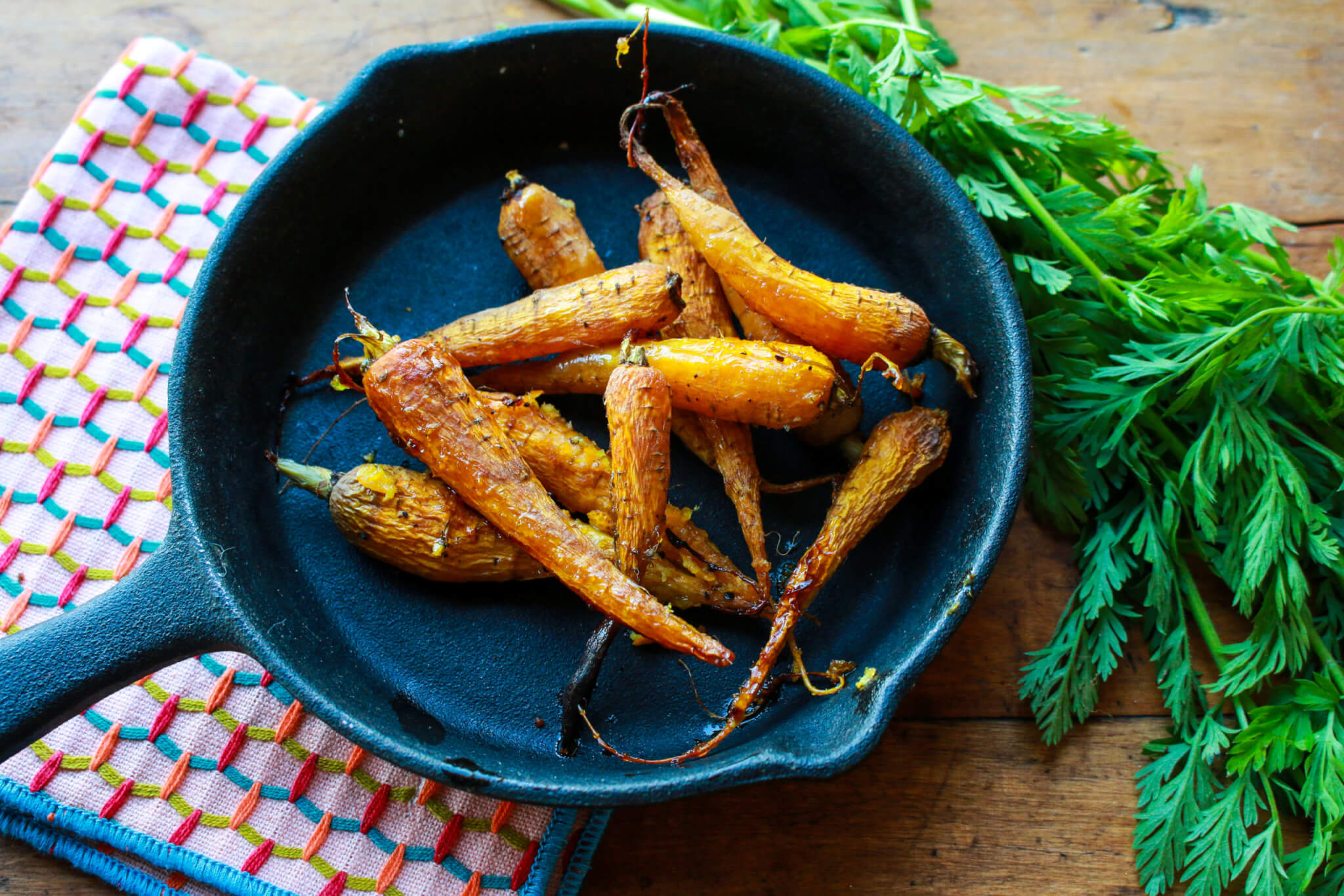
Question: Where do you get vitamin A?
Sharon’s Answer:
There are two forms of vitamin A:
- Preformed vitamin A (retinol and retinyl esters) found in animal foods, such as dairy, eggs, fish, and organ meats
- Provitamin A carotenoids found in plant foods, such as yellow-orange and deep green plant foods.
Your body can convert carotenoids, such as alpha-carotene, beta-carotene (the best form), and beta-cryptoxanthin into vitamin A. There are a few conditions which may limit one’s ability to convert, such as certain medications, and liver and digestive concerns.
The highest sources of vitamin A include sweet potato, carrots, spinach, kale, mustard greens, collard greens, turnip greens, beet greens, swiss chard, and winter squash. See the list of plant-based vitamin A sources below. You can also get vitamin A through fortified foods and supplements, such as multivitamins.
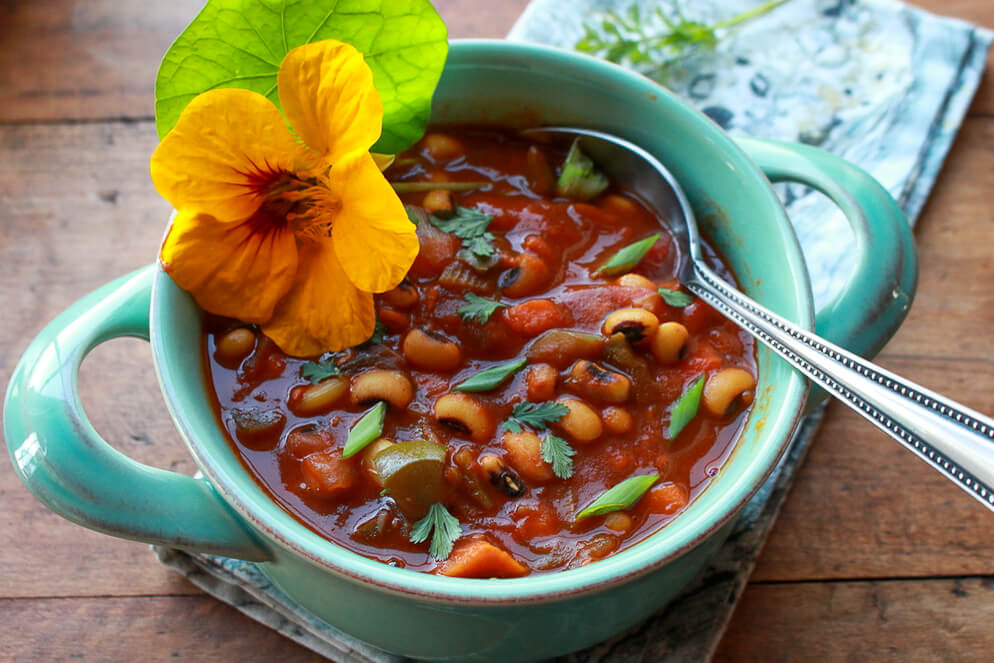
Plant-Based Vitamin A Sources
Check out this list of vegan vitamin A sources.
| Food | mcg RAE per serving |
| Sweet potato, baked in skin, 1 whole | 1,403 |
| Carrot juice, ½ cup | 1,128 |
| Pumpkin, canned, ½ cup | 958 |
| Spinach, cooked, 1 cup | 943 |
| Butternut squash, baked, cubed, ½ cup | 572 |
| Carrots, raw, ½ cup | 459 |
| Romaine lettuce, shredded, 1 cup | 205 |
| Kale, cooked, 1 cup | 170 |
| Cantaloupe, raw, ½ cup | 135 |
| Peppers, sweet, red, raw, ½ cup | 117 |
| Mangos, raw, 1 whole | 112 |
| Breakfast cereals, fortified with 10% of the DV for vitamin A, 1 serving | 90 |
| Tomatoes, chopped, 1 cup | 89 |
| Black-eyed peas (cowpeas), boiled, 1 cup | 66 |
| Apricots, dried, sulfured, 5 apricots | 63 |
| Broccoli, boiled, ½ cup | 60 |
| Tomato juice, canned, ¾ cup | 42 |
Source: NIH; USDA
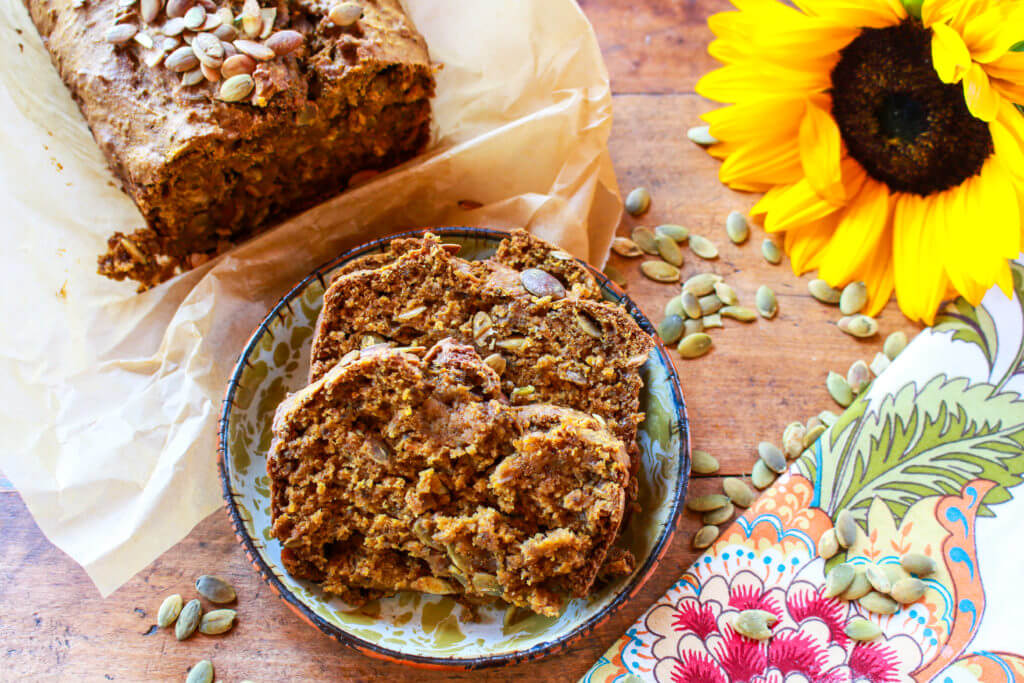
Question: How much vitamin A do I need?
Sharon’s Answer:
The RDA (recommended dietary allowance, or the average amount people need for good health) for vitamin A varies on age and gender.
RDA for Vitamin A
| Age | Male | Female | Pregnancy | Lactation |
| Birth to 6 months* | 400 mcg RAE | 400 mcg RAE | ||
| 7–12 months* | 500 mcg RAE | 500 mcg RAE | ||
| 1-3 years | 300 mcg RAE | 300 mcg RAE | ||
| 4-8 years | 400 mcg RAE | 400 mcg RAE | ||
| 9-13 years | 600 mcg RAE | 600 mcg RAE | ||
| 14-18 years | 900 mcg RAE | 700 mcg RAE | 750 mcg RAE | 1200 mcg RAE |
| 19-50 years | 900 mcg RAE | 700 mcg RAE | 770 mcg RAE | 1300 mcg RAE |
| 51+ years | 900 mcg RAE | 700 mcg RAE |
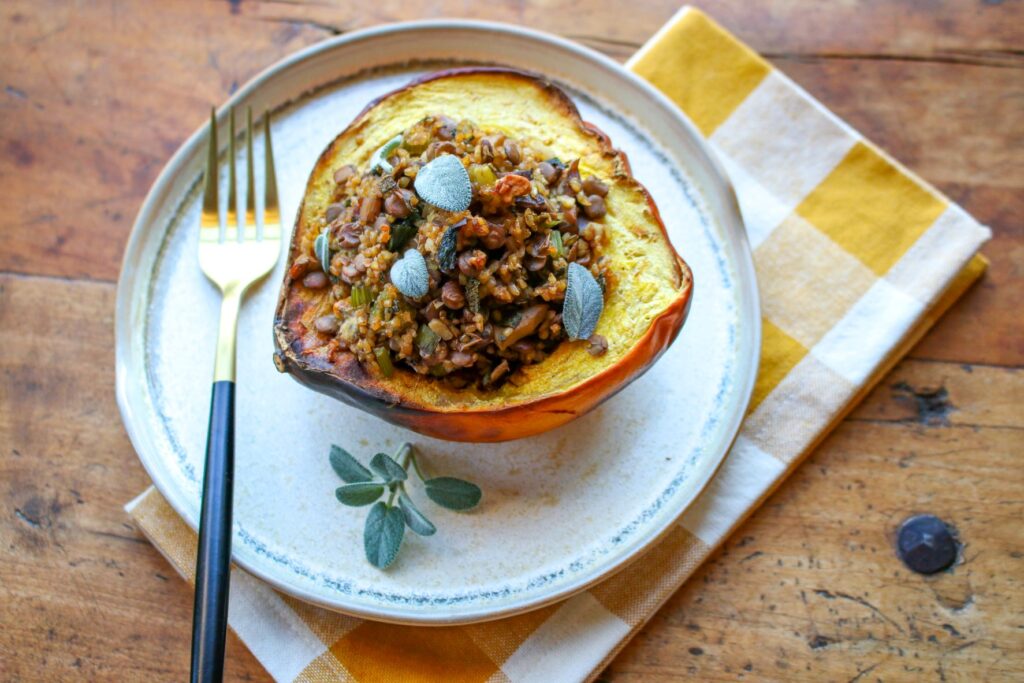
Question: What does vitamin A do in my body?
Sharon’s Answer:
Vitamin A is important for many functions, including vision, immune support, and normal cell growth, among many other things. The symptoms of vitamin A deficiency include night blindness, dry scaling skin, and impaired immune fiction. It’s important to note that toxicity can occur with very large doses of vitamin A supplements, so it’s not a good idea to take more than 100% of the RDA from fortified foods and supplements.
Indeed, it is important to make sure you get a daily source of vitamin A-rich foods in your diet every day to ensure you meet your needs. Fat also helps the absorption of vitamin A, so including a small amount of healthy fat, such as olive oil, nuts, seeds, or avocados, can help absorption. I also recommend that vegans discuss their individual diets with a healthcare practitioner, such as a registered dietitian, familiar with vegan diets. And you may enjoy this wonderful article on vitamin A in vegetarian diets from The Vegetarian Resource Group here. Check out my article on nutrients of concern for vegan diets for more information about balancing your diet with all of the most important nutrients.
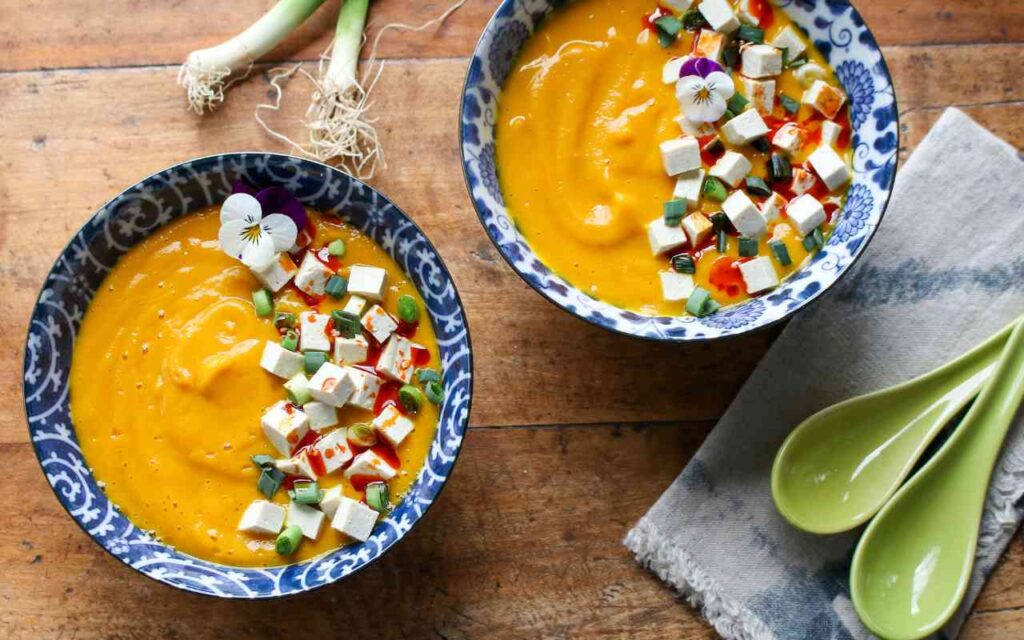
10 Vegan Vitamin A Recipes
Try these plant-based recipes rich in vitamin A.
Check out the other nutrition questions I’m answering at The Plant-Powered Dietitian:
